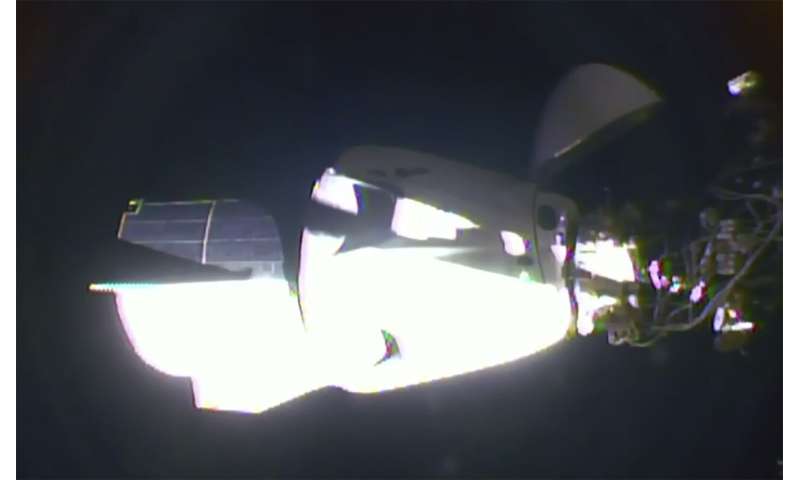Best of Last Week – US astronauts arrive at ISS, a wind, wave and solar collector and SARS-CoV-2 virus found in feces

It was a good week for space research as the team at SpaceX working with NASA, launched two astronauts into space aboard the Dragon capsule, which then arrived at and docked with the International Space Station. Also, a trio of researchers, Akhil Rao, Matthew Burgess, and Daniel Kaffine, suggested that orbital-use fees might be a way to solve the space junk problem—charging those who send objects into Earth orbit annually would provide an incentive for them to remove their wares once they are no longer useful. And a team at Imperial College found evidence suggesting that the dinosaur-dooming asteroid struck the Earth at the 'deadliest possible' angle—it maximized the amount of climate-changing gases that were thrust into the upper atmosphere.
In technology news, SINN Power, a German firm, introduced a game-changing solar-wind-wave energy platform that was able to collect energy from three natural sources, wave action, wind power and solar radiation. Also, Magnix, working with Harbour Air, announced that their groundbreaking all-electric plane that is paving the way to greener aviation, successfully completed a test flight—a first step toward commercial service. And Google cautioned the EU on AI rule-making—suggesting their definition of artificial intelligence was too broad, leading to overregulation of crucial technology. Also, a team at the University of Kiel developed a method to produce hydrogen in vivo photosynthetically that entails fusing hydrogenase and photosystem I in vivo.
In other news, a team working at The Rockefeller University announced that the first results from their human COVID-19 immunology study revealed universally effective antibodies—the results suggest that if a vaccine to fight the virus can be developed, it would likely be effective for most people. And a team at the University of Southampton found evidence that showed erosion of the Earth's ozone layer was responsible for a mass extinction event 360 million years ago—and that it was part of Earth's climate cycle, not a volcanic eruption.
And finally, if you are like millions of others the world over and have begun to venture out from isolation, but still want to stay safe, you might want to check out the research done by a team in China—they were able to isolate live SARS-CoV-2 virus from feces and detected RNA on surfaces.
© 2020 Science X Network